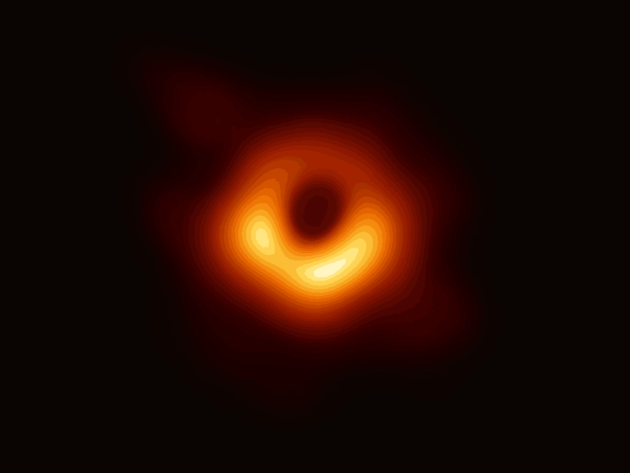Apr. 12 (NBD) -- Chinese image provider Visual China Group (VCG), a partner of Getty Images, was nearly gulped by a "black hole" on Thursday, after it was reported to have charged people for using the first-ever image of black hole.
The image company stated it had obtained the authorization for media use of the image from Event Horizon Telescope and claimed The European Southern Observatory (ESO) as the source of the photo on its website.
But later ESO denied the declaration in an exclusive interview with NBD on Friday, adding it "has not, and cannot, transfer copyright of its images to any other individual or organization".
Shares of VCG (000681.SZ) fell by the 10-percent daily limit upon the opening of stock market on the day.

Photo/European Southern Observatory
Profit model under question
A listed firm on the Shenzhen Stock Exchange, VCG has a market cap of nearly 20 billion yuan (3.0 billion U.S. dollars).
VCG built its photo gallery through partnering with over 300,000 contract contributors and more than 240 institutions.
According to the latest financial results, it generated 701.2 million yuan in revenue in the first three quarters of 2018, among which 82 percent is contributed by its visual contents and services.
Along with the decent financial performance, comes an alarming number of copyright lawsuits filed by VCG. Data shows that VCG and the affiliated firms have filed 12,000 copyright lawsuits in the past ten years.
The dispute over the image of the Messier 87 black hole is just a beginning. The image firm came under greater fire after state-run news agencies questioned VCG on China's Twitter-like social platform Weibo over its claiming rights to the national flag and national emblem.
Moreover, Chinese enterprises including home appliances producer Haier, retailer Suning.com and tech firm Baidu also underscored on Weibo that VCG has ever been authorized to sell photos containing their logos.
VCG then published an apology on Thursday evening, saying some of the images were provided by contracted contributors and those improper photos have been removed.
After igniting howls of public uproar, VCG was demanded to overhaul its website and meet Tianjin's cyberspace affairs authorities. The official website of VCG has shut down since Thursday evening.
People's Daily called for efforts to avoid falling into the "black hole" of inappropriate copyright protection on Weibo with an image reading "dare not add a picture" to satirize VCG.
It's worthy noting that the company happened to have 388 million lock-up shares to be freed for trading on the same day.

Photo/Shetuwang
Who owns the copyright and who to be charged?
"Why do I need to buy from VCG the photos of me playing drama?" lamented Monica Mok, a Beijing-born Australian model and film actress. She revealed on her Weibo account that she was sued by VCG for using her own photos which were taken by the staff member of a drama series she played.
Zeng Jie, lawyer at W&H Law Firm told NBD since the person who was photographed holds the portraiture right to the photos, the image site is not allowed to profit from the photos without the permit from the person.
The doubts clouding VCG and maybe other image providers are, in essence, queries over their business model and excessive copyright lawsuits rather than proper protection of intellectual property rights.
This is not the only puzzle surrounding VCG and photo sellers alike.
"A company was sued by an image firm for pictures it used in November last year, yet the photo provider bought the copyright last December," a person working in the self-media sector complained online.
So here comes the question: is it legitimate for such copyright claim?
"It depends on the original licensing rules of the images. If the image is originally for free, no entity has the right to demand payment even it's obtained the copyright at a latter stage," added Zeng.
Email: gaohan@nbd.com.cn


 川公网安备 51019002001991号
川公网安备 51019002001991号





